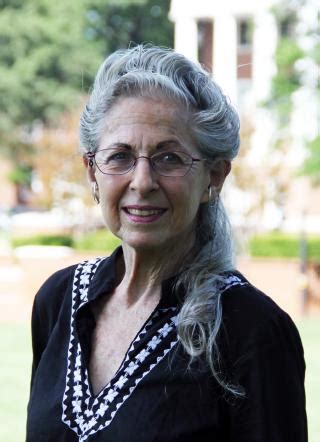A Quote by Friedrich Nietzsche
The various languages placed side by side show that with words it is never a question of truth, never a question of adequate expression; otherwise, there would not be so many languages. The 'thing in itself' (which is precisely what the pure truth, apart from any of its consequences, would be) is likewise something quite incomprehensible to the creator of language and something not in the least worth striving for.
Related Quotes
Imagine an extrahuman observer looking at us. Such an extrahuman observer would be struck precisely by the uniformity of human languages, by the very slight variation from one language to another, and by the remarkable respects in which all languages are the same. And then he would notice we do not pay any attention to that because for the purpose of human life it is quite natural and appropriate just to take for granted everything that is common. We don't concern ourselves with that, all we worry about are differences.
'God' is the name given to the most 'important' human idea. In English, as in other languages, the original sense of the word is obscure. But the character of the name is the same in all languages: it is a question. 'God' is the question 'Is there something more important than, something besides, man?'
I learned early to understand that there is no such condition in human affairs as absolute truth. There is only truth as people see it, and truth, even in fact, may be kaleidoscopic in its variety. The damage such perception did to me I have felt ever sinceI could never belong entirely to one side of any question.
I travel a lot. It used to be, when I would go to any country, I could guarantee that the first question would establish my name, and the fact that I've written Roots, and the third question, at least no later than the fourth question would not be a question, so much as a statement, something like, "We understand that in America white people do such and such bad things to black people."
To say that truth is not out there is simply to say that where there are no sentences there is no truth, that sentences are elements of human languages, and that languages are human creations.~ The suggestion that truth~ is out there is a legacy of an age in which the world was seen as the creation of a being who had a language his own.
I work in Hebrew. Hebrew is deeply inspired by other languages. Not now, for the last three thousand years, Hebrew has been penetrated and fertilized by ancient Semitic languages - by Aramaic, by Greek, by Latin, by Arabic, by Yiddish, by Latino, by German, by Russian, by English, I could go on and on. It's very much like English. The English language took in many many fertilizations, many many genes, from other languages, from foreign languages - Latin, French, Nordic languages, German, Scandinavian languages. Every language has influences and is an influence.
But though every created thing is, in this sense, a mystery, the word mystery cannot be applied to moral truth, any more than obscurity can be applied to light. ... Mystery is the antagonist of truth. It is a fog of human invention, that obscures truth, and represents it in distortion. Truth never envelops itself in mystery, and the mystery in which it is at any time enveloped is the work of its antagonist, and never of itself.
The full meaning of a language is never translatable into another. We may speak several languages but one of them always remains the one in which we live. In order completely to assimilate a language it would be necessary to make the world which it expresses one's own and one never does belong to two worlds at once.
When I was a young person I went to the university and I learned a rational language, to think with the left side of the brain. But in the right side of the brain you have intuition and imagination. Words are not the truth; they indicate the way to go, but you need to go alone, in silence. Symbols have a language that kills the words.
Maori get pigeonholed into the idea they're spiritual and telling stories like 'Whale Rider' and 'Once Were Warriors,' quite serious stuff, but we're pretty funny people, and we never really have had an opportunity to show that side of ourselves, the clumsy, nerdy side of ourselves, which is something I am.
The Bible is a wonderful book. It is the truth about the Truth. It is not the Truth. A sermon taken from the Bible can be a wonderful thing to hear. It is the truth about the truth about the truth. But it is not the truth. There have been many books written about the things contained in the Bible. I have written some myself. They can be quite wonderful to read. They are the truth about the truth about truth about the Truth. But they are NOT the Truth. Only Jesus Christ is the Truth. Sometimes the Truth can be drowned in a multitude of words.









































